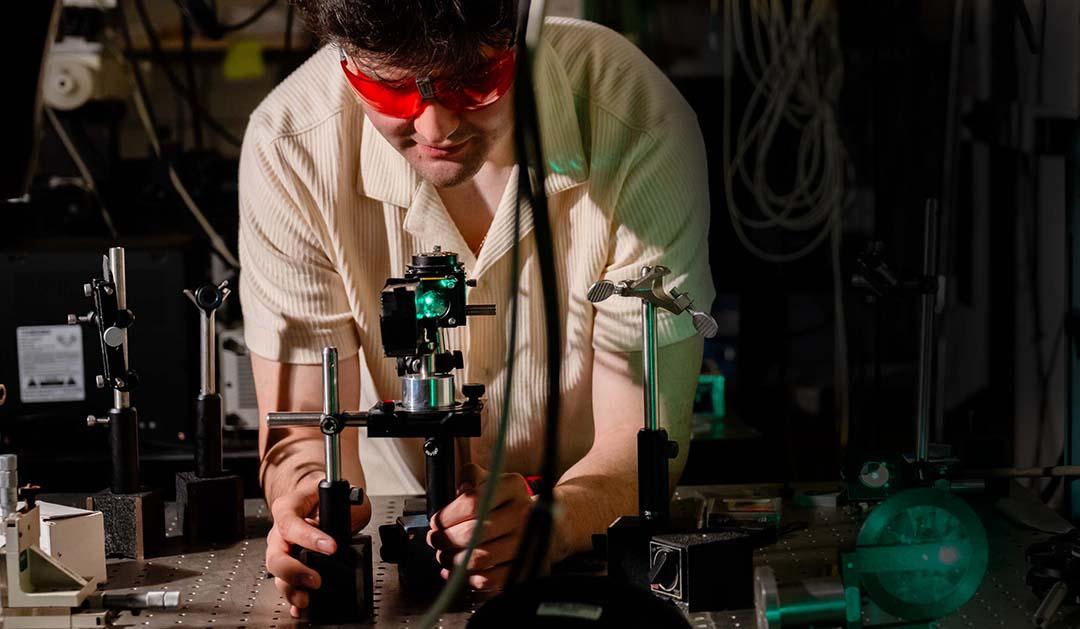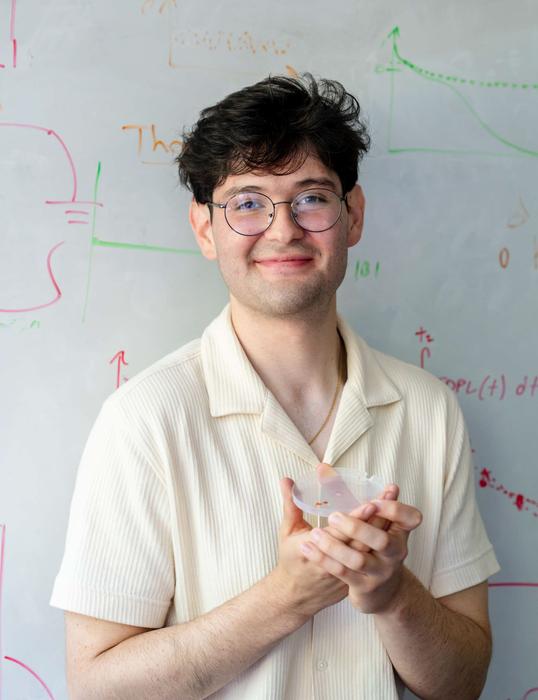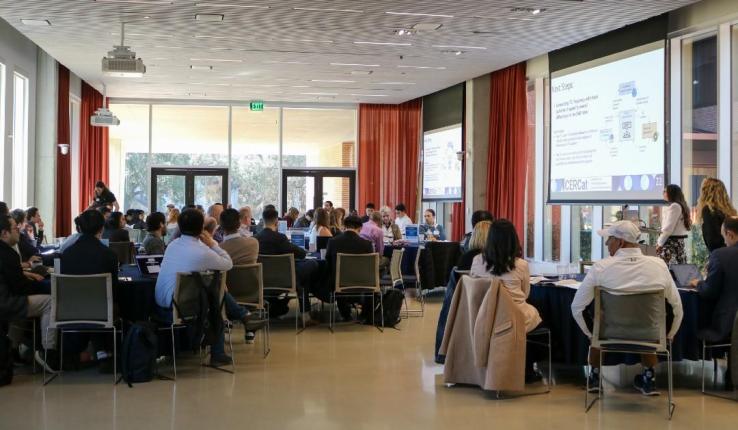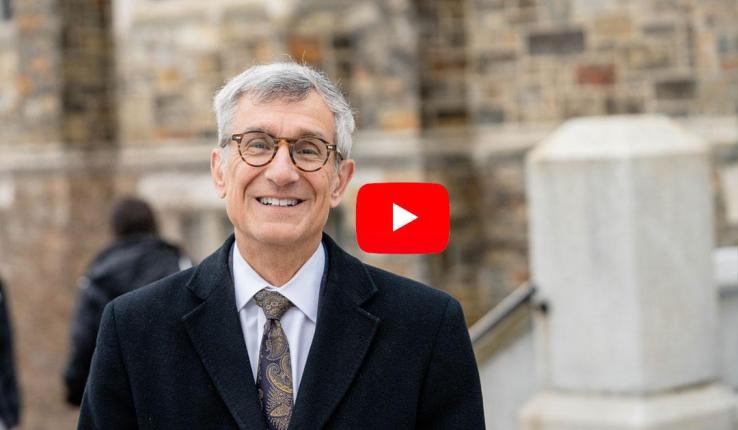At Lehigh, Muñoz conducts research on rubrene, an organic semiconductor that can transfer information through light, under quantum physicist Ivan Biaggio, professor and Joseph A. Waldschmitt Chair in Physics.
Semiconductors are used to transfer information within devices. Advancements in semiconductors have caused them to shrink in size, which can lead to interference known as quantum mechanical tunneling, Muñoz said.
Because of rubrene’s unique quantum mechanical properties, researchers are exploring it as an alternative way to transfer information for devices that may experience this interference, such as quantum computers.
In Biaggio’s lab, Muñoz participates in experiments that involve the use of lasers to excite rubrene crystals, making them glow. The crystals absorb laser energy, their electrons get excited, then they go back to their ground state, releasing energy out in the form of light, Muñoz said.
When rubrene absorbs light, it can create a pair of entangled excitons with opposite spin, meaning their quantum states are linked no matter how far apart they are.
Interestingly, an applied magnetic field on the crystal has a notable effect on when it releases its light back out, Muñoz said.
A magnetic field changes the quantum wave function and, in turn, the probability of the quantum entangled pairs joining back together and creating a boost in luminescence. When these entangled electron molecules merge together, under certain conditions, they will release a photon of light and, at a very high magnetic field, create a boost in luminescence, he said.
Muñoz said the research team is studying the behavior of these excited particles and the probability at which they reunite, and are measuring how they evolve and interact over time.
This research highlights the potential of condensed matter systems to contribute to fields such as quantum information science, particularly in quantum computing, and secure communication like cryptography, as well as renewable energy like solar technology.
Over the summer, Muñoz will continue to work on rubrene research, while also conducting machine learning research under Javad Khazaei, assistant professor of electrical and computer engineering and director of INTEGrated, Resilient and Intelligent EnergY Systems (INTEGRITY) Lab at Lehigh.
Muñoz spent the end of the spring semester teaching himself machine learning in preparation for his work in Khazaei’s lab, which is now focusing on using machine learning to enhance the efficiency and resiliency of high-performing computing centers.
Outside of the lab, Muñoz is passionate about connecting with others, and he volunteers in the Bethlehem community as an English as a Second Language (ESL) tutor.
A first-generation college student, Muñoz said his motivation to work hard stems from his desire to show his younger siblings that anything is possible with hard work and determination.
“I would love to show them, if you put your mind to anything you’re really passionate about and if you work really hard, someone will notice, and you will get recognized … you can do this,” Muñoz said.
Muñoz said his future goals include publishing a research paper, earning a Ph.D. in quantum computing and continuing to do work that has societal impact.
“I think the applications that quantum computers have could be absolutely exponential for the world because of how fast they can solve problems,” Muñoz said. “They could be applied to the environment and health, and make many sectors better.”
In the last decade, only three other Lehigh students received the Goldwater Scholarship: Kirsten Sjoberg ’24, Eric Wolf ’20 and Matthew Kilgore ’15.






